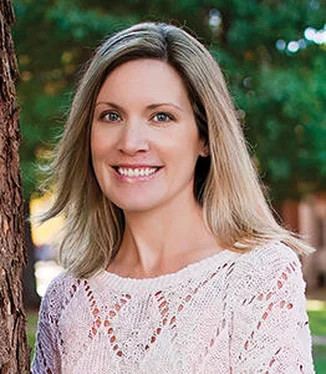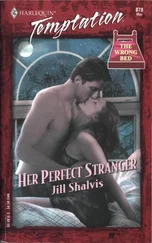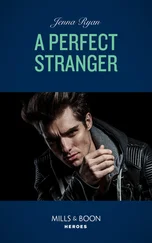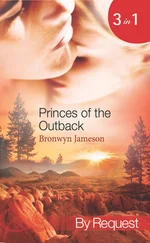Can we get a description? the police ask.
Jacket. A hood. No sense of width or breadth or height underneath.
I craved the anonymity, had the distinct feeling that I wasn’t supposed to be here, that the city itself had banished me and would no longer accommodate my presence. That I might run into Noah, or that the cop on the corner might be Kassidy or someone I’d once met at a crime scene. That they would see me and call after me or call someone else – my name floating through the city like I was something they’d been looking for.
I found myself in our old neighborhood from eight summers ago, standing in front of our old apartment, which seemed even more shabby and decrepit than when I’d seen it last.
I had the key from the box in my pocket, with the green-and-purple woven key chain. There were no apparent noises coming from within. I stepped down, the sides of the stairwell narrowing as I descended, and then I slid the key into the lock of the worn black door. It stuck halfway in, and I pulled too hard as it disengaged.
It could’ve been changed, I thought. New locks, maybe. But the key appeared to be made for a different type of lock altogether. I backtracked to the sidewalk, where puffs of smoke were rising from somewhere underground. Tried to picture the girl who would stomp down these steps, whom I would always hear coming.
The liquor store was no longer next door. It had been replaced by a sandwich shop. Nobody here to remember her – the girl I could not imagine sliding under the radar.
I followed up on the clues left behind in the box. Everything she felt was worthy of remembering, sealing it all up with silver duct tape. The green lighter, with the I the Beach decal, was the type found at any souvenir shop up and down the East Coast. But the ashtray, the magnet, these types of stolen items all had specific identifying details, and I let them lead the way. I stood in darkened, musky bars, saw storefronts replaced by newer, brighter places. I followed the address on the magnet from her old place of work. A bar in the South End, a place I’d never visited.
The bar was dark, it seemed on purpose. And it still had the name from the magnet. The hostess was wearing jeans and a blue T-shirt with the pub name. “Can I speak with your manager?” I asked.
“Malcolm!” she called without turning around.
The man wiping down the bar walked around, tucked a rag into the back of his dark jeans. “Can I help you?” he asked.
“I hope so,” I said. “I’m looking for a woman who worked here eight years ago.”
The man looked to be mid-thirties at most. His eyes went wide. “Don’t think I’ll be much help. I started about four years ago.”
“I just need a name. The names of the bartenders from that time.”
“You the police?” he asked. Though he knew I wasn’t. “Didn’t think so. I’d have to look through the old employment records even if you were.”
A man at the bar asked for the television channel to be changed, and Malcolm left me standing there.
“He wouldn’t give it to you?” the hostess asked. “He’s got some superiority complex, like he’s so much better than the rest of us with his college degree.” She didn’t look at me when she said it. “Anyway, back then about half the girls were paid under the table. What’s the name, sweetheart.”
“Emmy Grey,” I said. “Emmy, any last name.”
She thought for a moment, shook her head. “I’ve been here ten years, never heard the name. When was this again?”
“Summer, eight years ago. She was my height, had dark hair. Was probably early twenties.”
She grinned. “Sounds like most of us here.”
“Amelia Kent?” I asked, and again, she shook her head. “Ammi?”
“Sorry I can’t be of help. You sure you know her name?” She put her hand on her hip, suspicious of my motives, and I didn’t blame her. I couldn’t even give her a name.
I thought once more of a woman living off the grid. Becoming Amelia Kent for the moment. Casting her aside, becoming someone new. I lowered my voice. Said, “Leah Stevens?”
Her eyes lit up. “Leah. Sounds familiar. Yes, Leah. Just for a summer, right?”
I knew my eyes were wide, my face frozen.
“I remember her. I remember because the boss just loved her. Had some spunk, he said. Can’t say I knew her well, though. What do you need with Leah? She okay?”
I shook my head, unable to get a clear breath. “That’s all I needed.” The room was buzzing, a high-pitched warning that only I could hear.
My wallet that I’d lost that night at the bar, long ago, when I was out with her. You’re okay, Leah, she’d said. It’s just stuff.
All my credit cards. My driver’s license. It had taken me weeks to sort it all out, months to have everything replaced. And in the meantime, what was she doing with it? With me?
“Thanks,” I said, backing out the door.
Nothing was chance. Nothing was probability, an unintended cause and effect.
Even then, Leah. She had you even then. The thing she had come back for was not this box at all. The thing she had come back for, all along, was me.
I stumbled out into the daylight, squinted from the glare of the sun on the windows, listened to the trucks rumbling down the side streets. Wondering where she was, then and now.
On the way back to my car, I landed myself at the public library, logged myself on to a machine, and looked once more, for Bethany Jarvitz. Not all articles had become accessible on the Internet, especially from that long ago. I used the dates I’d found in the article about the fire and went to the archives. Old-style archived copies of all the major papers. Found a few mentions I had missed the first time. One from mid-June, eight years earlier, when we were first roommates in that basement apartment:
Bethany Jarvitz was taken into custody last week following an anonymous tip. She was indicted for arson and involuntary manslaughter in the death of Charles Sanderson, 32, of New Bradford, PA. She entered a plea of guilty this morning in exchange for a more lenient sentencing. The other suspect remains unidentified.
And before that, another shot of Bethany’s face before she was found. The photo grainy and pixelated, but this time in color, zoomed out, so you could see the full image. Her face was harder to see clearly from the distance, but you could see the person beside her. A dark hood pulled over the person’s head, shielding the face, shoulders hunched over.
A sliver of bright color caught my eye from lower in the frame. Bright green, in Bethany’s hand. I leaned closer to the screen, zoomed in until the pixels segregated into individual boxes of color. Neon green with a sliver of red. The lighter. The lighter in that box. The red from the heart, peeking out from her fist. The lighter that once had been in my hand.
I wanted to call up Kassidy and give him a name: Melissa Kellerman. I’d given Noah the wrong one. Used the last of my goodwill on a dead girl. She was still out there, and I was chasing her ghost.
Surely Bethany would’ve been offered a better deal for giving up her name. Emmy must have been scared she would. Always on the run, just in case.
And then, because I had a habit of digging until I got what I wanted, I put the dead man’s name into the search, ready for the obituary. I had the year, the town, the age – the fingerprints and DNA of the written world.
There wasn’t much on the case in the papers, which I soon discovered was because the victim was not the perfect reader bait. He had a history of offenses, an assault charge, but nothing that stuck.
Then I saw where he was from. Not where the crime was committed but the place he had been born, had presumably grown up. A jolt of recognition. The place Vince told me he’d gone to high school in upstate New York. Where he’d first met Emmy as Melissa. The victim, Charles, was a man from the same town. And there it was, the potential that she knew him.
Читать дальше












